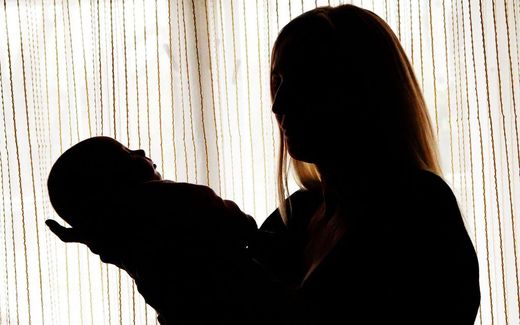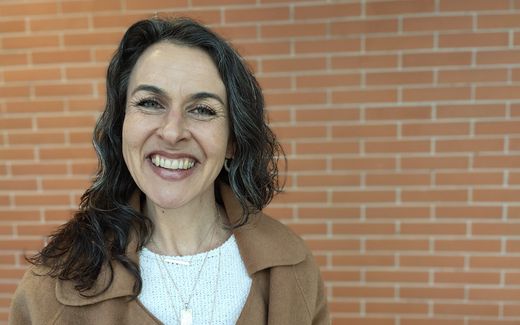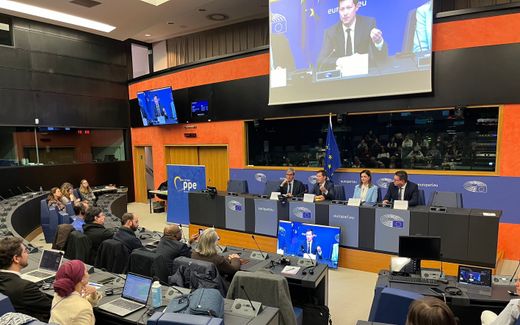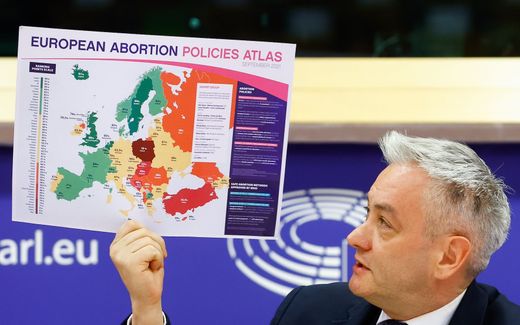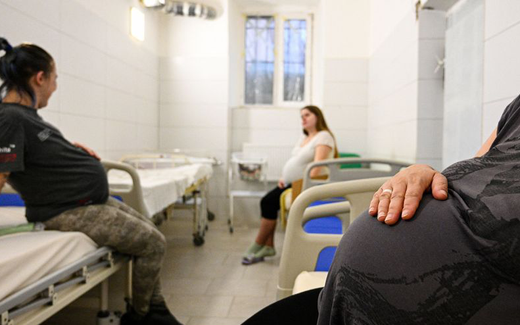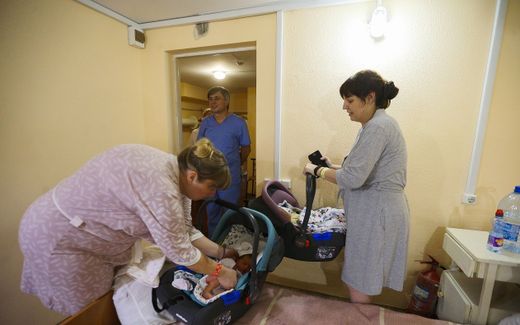Unlikely partners find common enemy in surrogacy
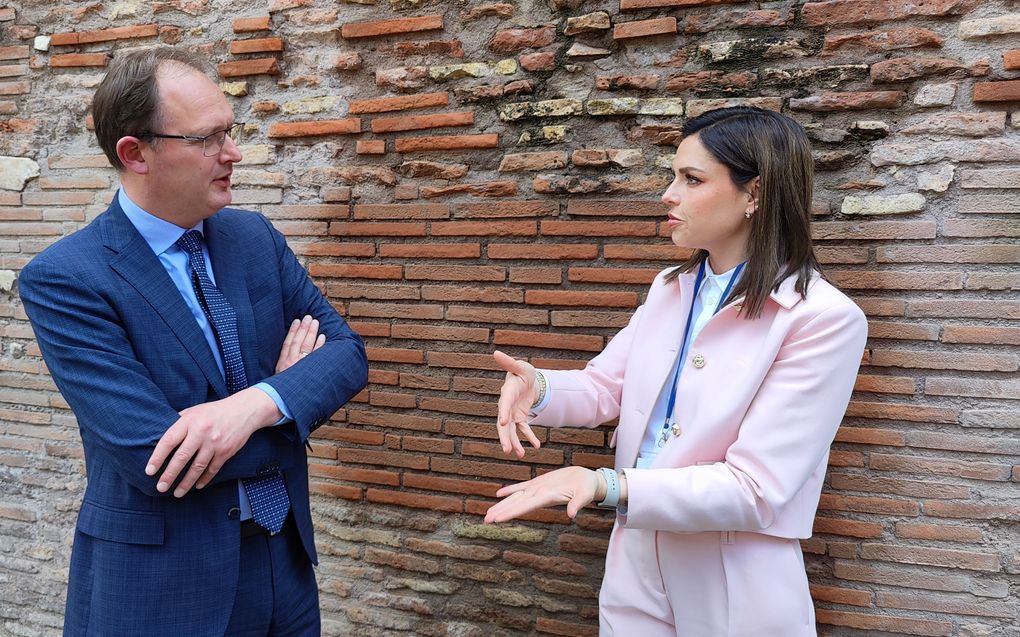
One an outspoken atheist feminist from France, the other a Reformed politician from the Netherlands. "We form an interesting but important coalition." Photo CNE.news
European Union
People hardly ask questions about surrogacy, notice the French activist Olivia Maurel and the Dutch Member of the European Parliament Bert-Jan Ruissen. "People have no idea what kind of market is behind this."
Until recently, a meeting between them was unlikely. Their worlds are quite different: one is an outspoken atheist feminist from France, the other is a Reformed politician from the Netherlands. Despite these differences, French activist Olivia Maurel and SGP MEP Bert-Jan Ruissen find common ground in their shared mission: a worldwide ban on surrogacy. "We form an interesting but important coalition", Ruissen says.
Maurel and Ruissen are examples of the flanks of this politically diverse coalition, which has grown significantly in recent years. In early April, they met at the Casablanca conference in Rome. There, politicians, legal experts, and medical professionals gathered to discuss a global ban on surrogacy.
During the conference, there was little opportunity for an in-depth conversation. At the request of the CNE.news, Maurel and Ruissen spoke again at the end of April via a video call about their objections to surrogacy. "We use a woman for her uterus and take a child away from the mother immediately after birth," says Maurel, who was born through surrogacy. "That's why Olivia's story is so important," Ruissen adds. "People need to know the consequences of this practice."
In surrogacy, a woman carries and gives birth to a child for another, whether or not for financial compensation. The commercial market for this is growing from 14 billion dollars in 2022 to an expected 129 billion dollars in 2032.
Personal
For Maurel, this debate is personal. She was born in 1991 to an American surrogate mother. The publication of her story on CNE.news in October last year brought her into contact with the organisation behind the Casablanca Declaration. With this Declaration, politicians, jurists and other experts call on countries to ban surrogacy within their territories.
Shortly after they connected, Maurel became the spokesperson for the Casablanca Declaration. She shared her life story in various parliaments and had a private audience with the Pope. "I told him I am an atheist but that we need to work together on this issue," says Maurel. "He is very kind; he understood me and was very open to my story."
Politicians she addressed also showed understanding, says Maurel. Yet, she also sees some naivety. "Not everyone realises how much this market has been commercialised. It sounds nice: a woman helping another couple fulfil their desire for children. But people have no idea what kind of world is behind this."
MEP Ruissen signed the Casablanca Declaration in April. He shares Maurel's observation. "With surrogacy, you cross an ethical border when you intentionally do not let a child grow up with its mother. In this debate, the desires of adults seem to be more important than the child's interests."
Maurel and Ruissen largely agree with each other's arguments despite their different backgrounds. Both focus on the child in their objections to surrogacy. "We must prioritise the child in this discussion," says Ruissen. "With surrogacy, we prioritise the child in a contract," adds Maurel. "We ignore children's rights for the desires of adults."
Momentum
In European politics, surrogacy is on the political agenda, Ruissen says. Last week, the European Parliament adopted a directive banning the exploitation of surrogate mothers. Maurel was present at the vote. “While this is not a condemnation of the practice as such, it is quite an achievement”, she says. “It is a step into the right direction, Ruissen adds. "We have momentum, and we must use it." A group of French parliamentarians did just that on Tuesday when they proposed enshrining the ban on surrogacy in the French constitution.
A politically diverse coalition around a particular issue is not new. In discussions about gender, feminists and conservatives also find common ground. But Ruissen and Maurel see around the topic of surrogacy not only shared ambition but also results. "In the European Parliament, you see people from the extreme left to the extreme right coming together on this issue," says Maurel. "That's why we also try to work with various parties outside our political bubble," Ruissen responds. "It is so important that we work together when it comes to human dignity." That is what it is all about, says Maurel. "It's about more than just surrogacy. Sometimes, we seem to forget, but human dignity is at stake."
Money
Maurel knows the consequences of surrogacy like no other: she inherited her mental health issues from her surrogate mother, who is also her biological mother. Additionally, she struggled with the fact that her parents had paid for her; knowing this made talking about it difficult. "It felt like: Olivia, suppress your feelings; they may have spent more than $150,000 to get you," she said earlier to CNE.news.
Still, she stepped forward to share her story. "Our society is heading in the wrong direction and no longer protects the most vulnerable: women and children. I don't want my children to live in such a world," explains the mother of three. However, she pays a price for her openness: "My speech in the Czech Parliament ended the relationship between me and my parents."
Despite these struggles, Maurel has no negative feelings towards her parents. "They just used the means available to them without being aware of the consequences." Maurel also sees that her story does not apply to every child. "I am sure that there are also beautiful surrogacy stories. But such successes do not make the practice more ethical."
Since Maurel began seeking publicity with her story, she has come into contact with other children of surrogate mothers. They often dare not speak out, the activist observes. "Some are still dependent on their parents, and others do not want to be abandoned again. They struggle with a conflict of loyalty."
Contract
Both Maurel and Ruissen focus their arguments on commercial surrogacy. Altruistic surrogacy, in which women carry a child without any financial reward, accounts for a small percentage, about 2 per cent. However, both Maurel and Ruissen oppose this as well. "Even with altruistic surrogacy, you still need a contract," says Maurel. "And you still separate children from their mothers”, Ruissen adds. “That is an ethical boundary we should not cross."
For most people, surrogacy is a distant issue, Maurel acknowledges. However, she believes this does not diminish the importance of discussing it. "Not everyone struggles with reduced fertility or has the money to do this. But if we as a society start buying and selling children, we are heading in the wrong direction. That's why we need to have this debate."
Maurel's story
In November 2023, Maurel shared her story in the Czech parliament.
I was born from surrogacy and I am now fighting against surrogacy.
— Olivia Maurel (@maurel_olivia) November 22, 2023
Here is my speech given at a conference in the Czech Republic parliament, and most precisely in one of the most prestigious rooms of the parliament. I am so honored.
Please listen and feel free to share ! pic.twitter.com/Kjg0o9iboA
Related Articles


